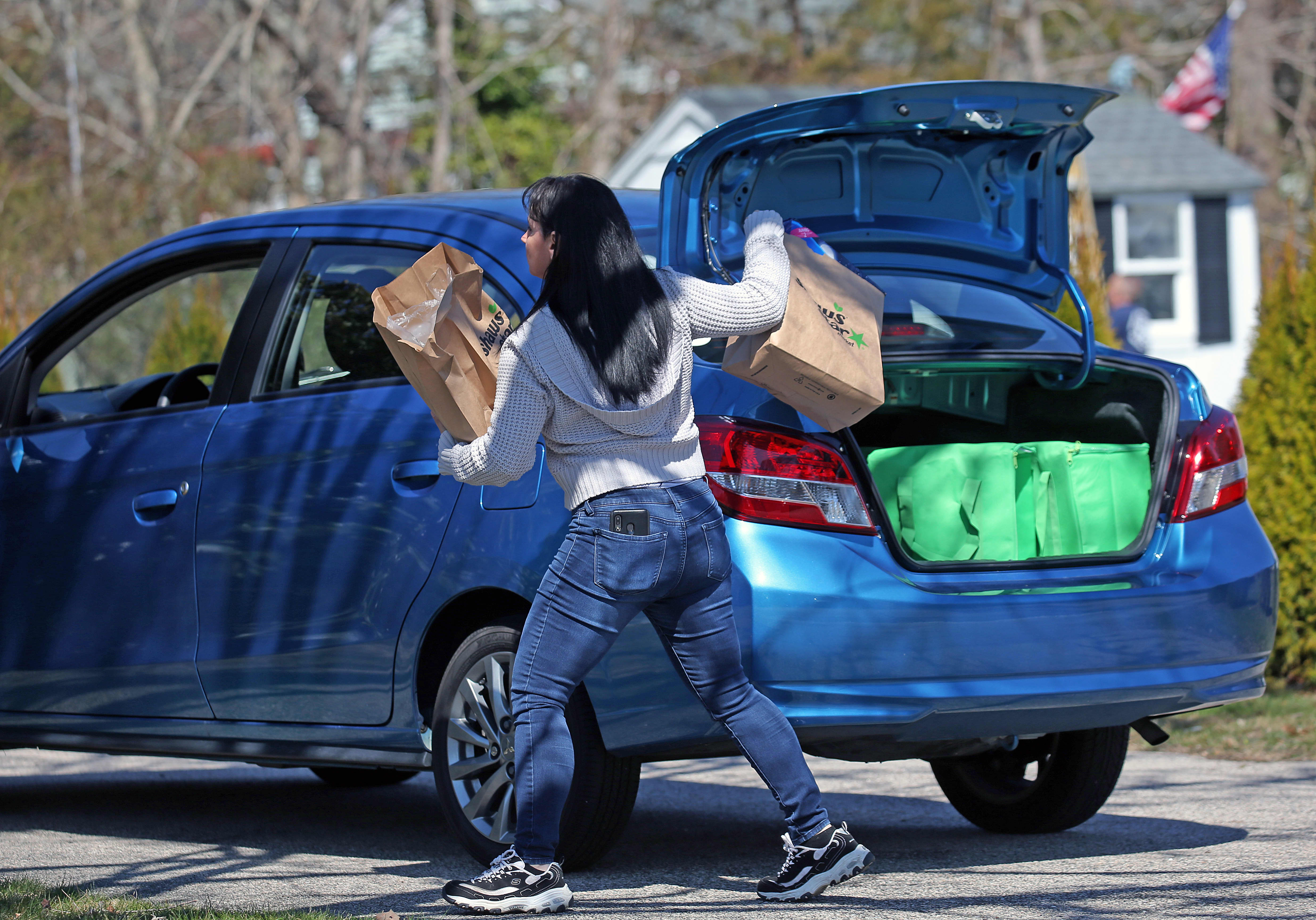Instacart’s valuation has more than doubled in 2020 to $17.7 billion following new funding round

FALMOUTH, MA – APRIL 8: Instacart shopper Loralyn Geggatt makes a delivery to a customer’s home during the COVID-19 pandemic in Falmouth, MA on April 7, 2020. Some Amazon, Instacart and other workers protested for better wages, hazard pay and sick time. (Photo by David L. Ryan/The Boston Globe via Getty Images)
Boston Globe
Instacart raised new funding, more than doubling the grocery delivery start-up’s valuation from the start of the year and further cementing its place as one of the most valuable private companies in the U.S.
Amid surging demand for grocery delivery due to the coronavirus pandemic, Instacart has raised $200 million in a new funding round led by existing investors Valiant Capital and D1 Capital Partners. The round increases the startup’s valuation to $17.7 billion. Instacart plans to use capital to expand its ad and enterprise businesses, and for product development, the company said.
Instacart was valued at $7.9 billion at the start of the year and raised another round of funding in June led by DST Global and General Catalyst. Instacart is now valued at the same level as Airbnb in private markets, highlighting the diverging fortunes start-ups have seen this year.
As the pandemic devastated global travel, Airbnb saw its valuation slashed earlier this year to $18 billion, nearly half of what the company was worth in 2017. Meanwhile, Instacart has seen its share of the grocery delivery market surge to nearly 50% as more consumers buy more groceries than before and restaurants operate at limited capacity.
The latest funding round comes as Instacart and food delivery apps expand beyond restaurants into grocery, convenience and retail. Over the last few months, DoorDash has formed partnerships with PetSmart, Macy’s and Walgreens, and launched its own “DashMart” virtual convenience stores. Uber is also expanding grocery delivery with Cornershop and is in the process of acquiring rival Posmates.
Instacart is also expanding beyond its core with partnerships with new retailers this year including Walmart, 7-Eleven and Sephora.
But the step-up in valuation also comes amid growing unrest among Instacart’s shoppers, who are classified as independent contractors. During the coronavirus pandemic, they have been on the front lines as essential workers, but do not have the protections or benefits that full employees are entitled to, including employer-sponsored health insurance.
Instacart also faces regulatory challenges. On Nov. 3, California will be voting on Proposition 22, a ballot initiative that will have major implications for the gig economy. If it passes, it could roll back minimum wage and other protections for gig economy workers. If it doesn’t, it would force companies like Instacart to reclassify contractors as employees, which would upend its business model.
“I’m incredibly proud of our team’s work to scale our business this past year and rise to meet the unprecedented consumer demand and growth,” Instacart founder and CEO Apoorva Mehta said in a press release. “Their tireless efforts have allowed us to expand our marketplace…and move grocery delivery into the mainstream…While we’re proud of these milestones, we believe we have a lot more work to do to deliver for all the communities we serve”